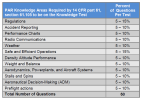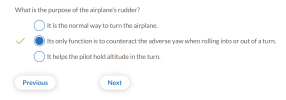VoiceOfReason
Filing Flight Plan
- Joined
- Sep 27, 2022
- Messages
- 26
- Display Name
Display name:
VoiceOfReason
has anyone recently taken the private pilot written ?
I’m interested in knowing how much weather vs weight-balance vs VOR stuff etc
bonus points if you were a Sportys student and can opine about the test prep questions versus the ‘real test’
I’m interested in knowing how much weather vs weight-balance vs VOR stuff etc
bonus points if you were a Sportys student and can opine about the test prep questions versus the ‘real test’




